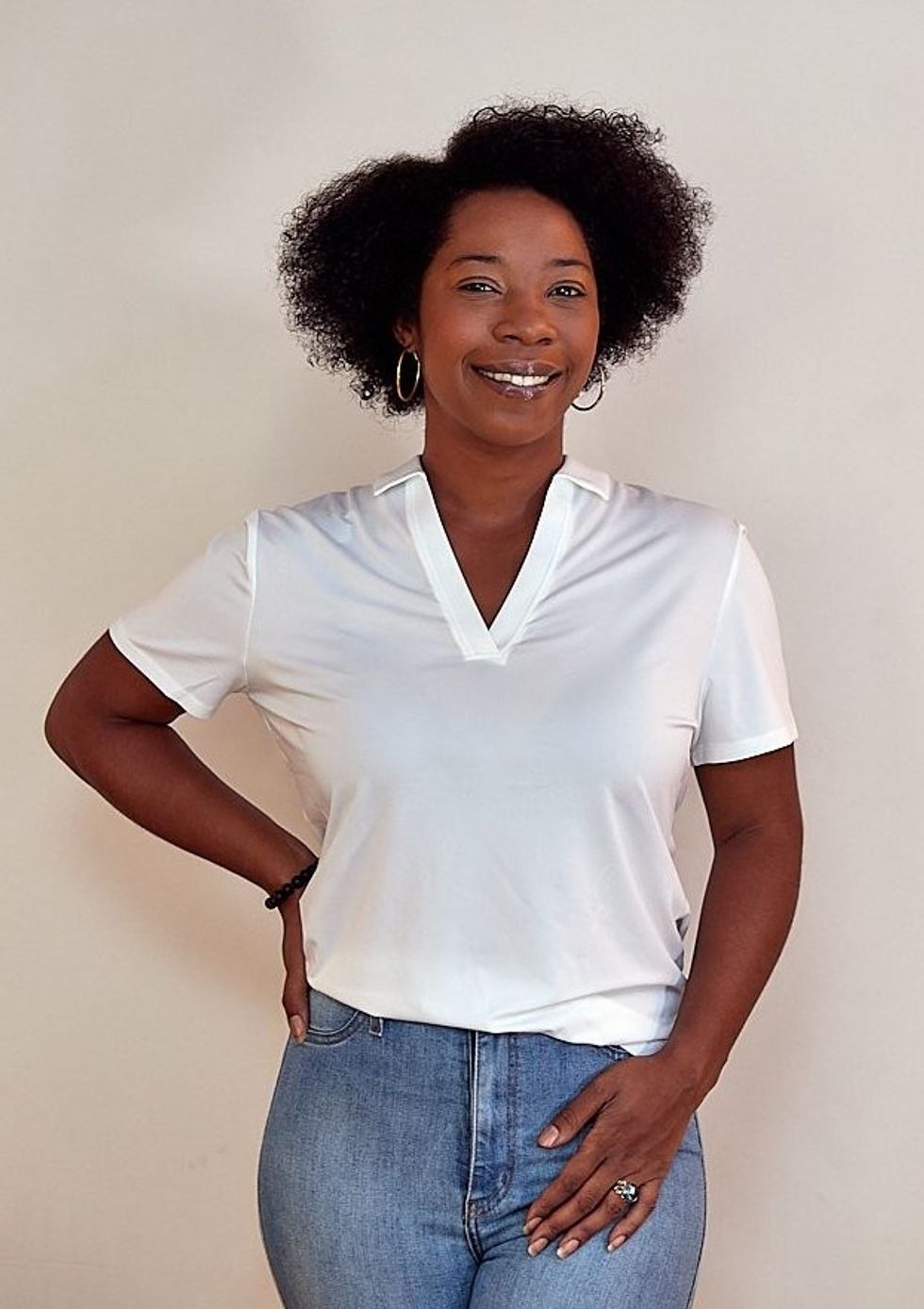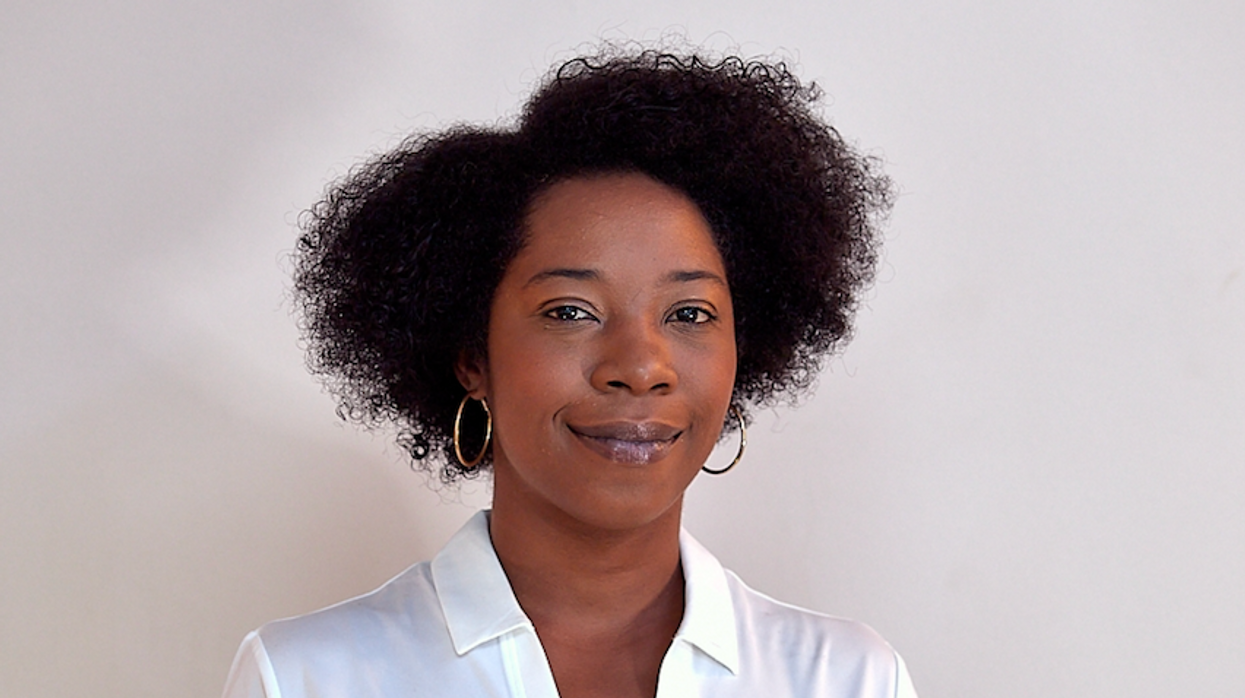There’s a down-to-earth quality to Chloe Brown, a policy analyst and fresh face in the Toronto mayoral race. She’s pegged as something of a dark horse, and unlike your typical politician, she wastes no time in getting to her point.
As a patron of the City, Brown has always felt that the systems in place are littered with inequalities, and she thinks it’s high time to evolve and level the playing field. If elected, she hopes to modernize practices for renting, taxation, and development in a way that not only gives Torontonians the supports and services they need, but engages them in the City’s inner workings.
Brown has come in hot throughout the race, from her “3 Big Ideas” -- her people-first, tech-centric action plan, which borrows solutions from global societies -- to the frank manner in which she challenges her opponents. And through it all, her genuine desire to improve the services she herself has relied on (and still relies on) has shone through.
- READ: How Incumbent Mayor John Tory Plans to Make Housing Attainable Again
- READ: "We Use Perfection as the Enemy of Good": Mayoral Candidate Sarah Climenhaga on Toronto's Housing Issues
- READ: Mayoral Candidate Gil Penalosa Wants to Transform Toronto with a "Renovation Revolution"
Ahead of Monday’s election, STOREYS spoke with Brown about the issues entrenching housing and transit in Toronto and her desire to overhaul the status quo.
Talk to us about your decision to join the mayoral race. What was your motivation?
I've been working my butt off saving for a down payment, but everything's so expensive. Because I'm young and single, my down payment increases by 10% to 15%. No matter how hard you work in this city, there are so many administrative barriers to realizing your life.
There needs to be a leader that's going to clear out the outdated policy that is currently slowing down the system, and I just did not believe that could be John or Gil. As a policy analyst, I not only understand the frustration as someone who works in the system, but someone who also uses these systems. And that's what really pushed me into the race.
You’ve spoken of Mayor Tory’s “lack of imagination and leadership.” What would you do differently in those regards?
I'm trying to push for using technology to make our systems smarter. One of the things I'm looking at is modernizing our procurement and permitting systems so they're user-friendly for the sector that needs them.
When you look at the way the city's website is designed, unless you're familiar with how the city works, it's useless. So this is where I'm trying to bring in more young people who have technological savvy that can work with communities as user experience researchers to create features that would be useful on the city's websites, permit systems, and paper systems.
There needs to be an evolution of public services. And that's not happening because of the way leadership thinks; it's been hire more bodies instead of investing in smarter solutions. That's where I feel I bring a new perspective.
In your view, what are the biggest housing challenges the current government has not addressed?
As a renter, one of the things that really troubles me is that there's no public service for rental. Right now, it's going through Kijiji, PadMapper, Viewit -- they're using my data to make their services better, so why doesn't a public equivalent exist? That, to me, would raise the quality of rental.
There needs to be a better system for the property ladder. And that's where I think technology could help. We know housing is out there, we just don't know the quality of housing, we don't know who the owners of it are, and we don't really have a good enforcement system for turning rental communities into permanent residences. I would like to see apartments as a part of rent-to-own programs.
And there needs to be a better public-facing system for tenants and landlords. When I was 20, I ended up living in a homeless shelter because I didn't know what Toronto Community Housing was, what subsidized housing was, or that there was a waiting list for subsidized housing.
It’s important to me to have a central place for making sense of those nuances, because housing isn't just affordable or not affordable, there's rent-geared-to-income, there's subsidized housing -- there are so many different types of housing arrangements in place, but people are getting scammed because the government lacks any regulation on it.

Can you speak to your plan to switch from the property tax system to a land value tax?
I would like to use data to make it clear why people are paying for what they're paying for. For example, if I live in Rexdale, and I'm not surrounded by services, why should my property tax be the same as someone who lives close to the Spadina subway station?
Using geo-information systems and a variety of other open data sources, we can start creating a point system for determining the value of land. I think it's so important to have that because when we talk about tax fairness, we have people subsidizing certain landowners. And one of those groups is churches and charities. Even our universities are some of the largest landowners in the country.
By having a land value tax, we can start giving people fairness that is data- and evidence-driven.
Addressing the “missing middle” is a hot topic right now. How do you plan to address the red tape and stigmas preventing middle housing from being built?
I want to limit the amount of appeals that can block housing developments based on aesthetic reasons or neighbourhood character. One of the biggest things stopping affordable housing from being built, in my opinion, is that community consultations run without objective.
Homelessness is solved by housing. If people want to save money on incarceration, hospitals, and all the other social programs that come with dealing with someone that doesn't have stabilized housing, we just need to build mid-rise housing.
For me, it’s about using strong mayor powers to just get it done. And also just being very blunt with a lot of these resident and homeowners associations. They can either pay for the cost of having a large homeless community or they can welcome new neighbours.
A point of frustration for Torontonians has been the delays in rolling out transit infrastructure. How would you help to move things alone?
I want to rezone communities and work with them to identify the essential services that are missing, and then offer them low-cost or free rent on the city-owned land to establish those services so people don't have to travel because there are a lack of services in their own communities.
Secondly, I would invest in creating a smarter corridor. I would like to convert the Toronto Police Parking Enforcement into a unit that works with city planning and the Transportation Services Act, so we have a unit of people working on creating a smarter transit network.
There's an example of this currently going on at UC Berkeley: the Connected Corridor. They're implanting traffic sensors throughout the corridors so vehicles talk to the infrastructure. It allows them to manage their buses better. There are a lot of opportunities for leveraging transit users' data to make smarter transportation routes, and that's at the centre of my transportation plan.
When it comes to electing leadership, change doesn’t typically come easy. What would you say to voters who are wary of a change in mayor?
Change happens whether we like it or not. My stepfather passed at the beginning of the pandemic, and I wasn't ready for it, but it's it was one of those moments that really solidified for me that it's better for me to be prepared for change than to deny it will happen. And that's what I've really tried to impress upon Torontonians. This election is the one opportunity we actually get to consciously decide the type of change we want.
These answers have been condensed for clarity.
The Municipal Election is Monday, October 24. Find your polling station here.





















